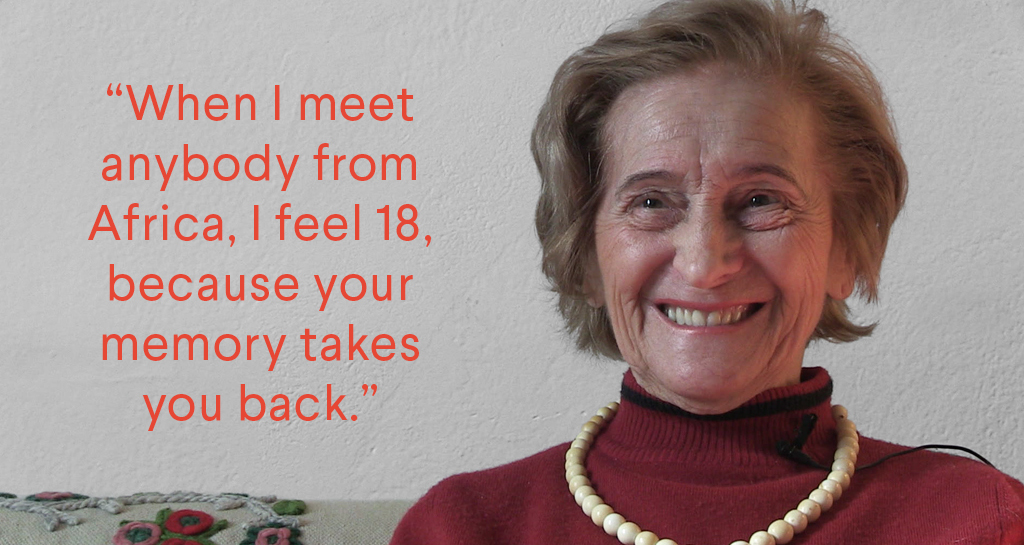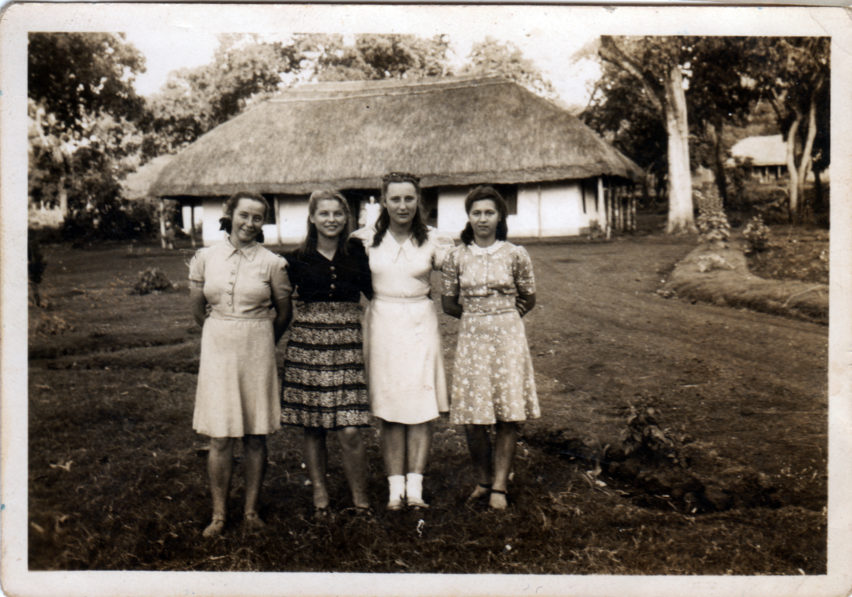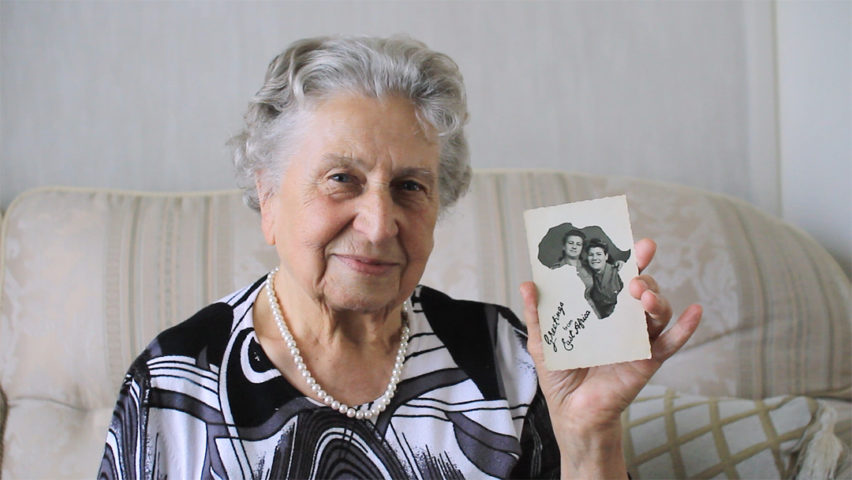
Jula Mackiewicz, Sheffield, UK
My great-aunt Jula was 13 when she was deported from Poland to Siberia in 1940. The second of six children, she had a significantly different experience from my grandmother, two years her junior. Unlike Kazia, who was enrolled in Communist reform school upon arrival in Siberia, my aunt Jula was pressed into forced labour, chopping wood in the Siberian forests, working alongside older men. The arrangement wasn’t negotiable: if you didn’t work, your family wouldn’t get food. The work was rough, and not without incident, as she ended up being hospitalized with injuries related to tree-cutting.
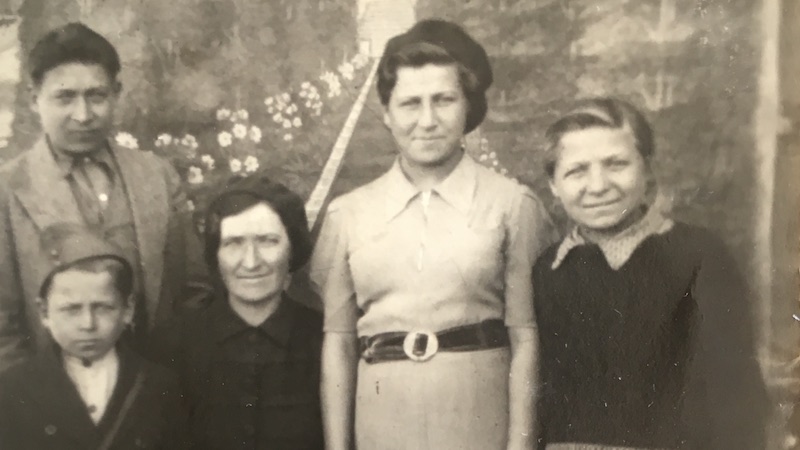
Family portrait in Tehran, Iran, 1942. Jula is second from the right, next to Kazia on the right.
When the Nazis invaded the USSR and the Poles were granted amnesty by Stalin in the summer of 1941, the Gerechs made their way 4,000 km to Tashkent, Uzbekistan, where the Polish Army was forming. It was difficult to keep the family together throughout this migration - Jula joined the army cadets in Uzbekistan, while her father was recruited as a soldier and sent off to fight in Egypt, and the rest of the family made their way to Tehran.
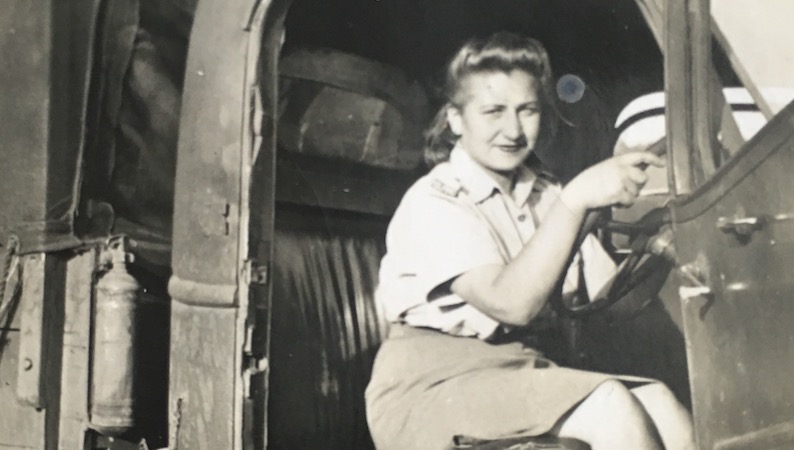
Jula working in Nairobi, Kenya for the Royal Air Force.
When the Gerechs resettled in England after the war, Jula joined them and soon married another Pole, Antek Maciejewski in November 1948 and made their home in Sheffield. Jula knew that her traveling days had ended, she had found her new home. Unlike Kazia, however, the Polish immigrant experience in England was not an inclusive, multicultural phenomenon. Despite people pointing out to her a physical resemblance to Queen Elizabeth, Jula to this day doesn't feel British, nor did she feel at home returning to former home in Poland, now part of Belarus. Although she has raised a family and lived most of her life in England, a sense of otherness persists.
Jula did made a trip to her hometown of Ostrówek in 1990, but was disappointed in what remained of the former Polish village. The Soviets had diverted a river and bulldozed a nearby hill - almost nothing remained of the homestead. As far as she was concerned, there was nothing to go back to. When I returned to Belarus in the summer of 2016, I did manage to track down the remains of the home where she was born, now in an overgrown forest. I was able to complete the circle by bringing a brick from the home back to Jula.
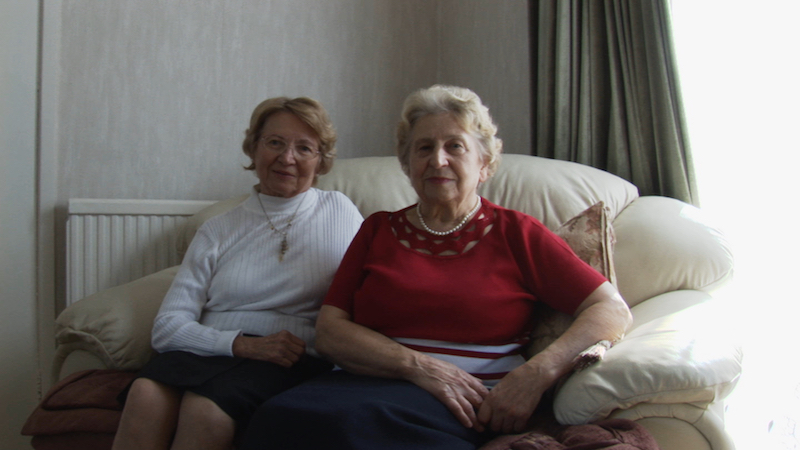
Kazia (on the left) with her sister Jula on their last visit together in Sheffield, UK.
Despite the many challenges throughout her life, Jula has always had an affable, easy-going spirit. We see her in the film with Kazia, debating certain details of their long journey from Siberia to Tengeru. Although they may not have always agreed on the specifics, in both sisters, we observe an appreciation of life’s simple pleasures and a desire to look forward rather than backwards.
